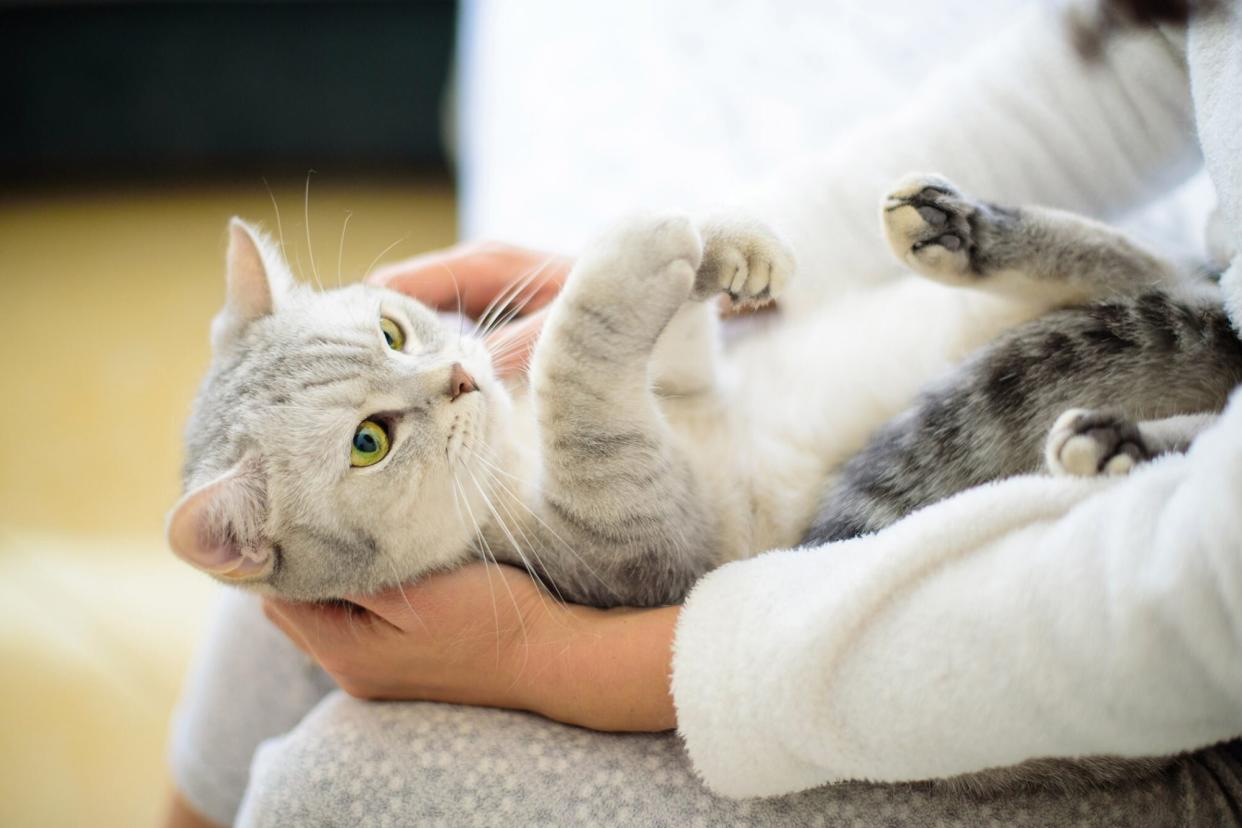Do Cats Know When You Are Sad?

Waitforlight / Getty
TABLE OF CONTENTS
On This Page
Do Cats Sense Sadness?
How Cats Interpret Human Emotions
How Human Emotions Affect a Cat
It's not a cat's fault that they get a (false) bad rap when it comes to socialization and bonding. Dogs, or man's best friends, were domesticated as social friends long before cats. This means they have a head start on understanding us—including knowing when we're feeling blue and how to cheer us up. Now that we've spent a few more years with our feline friends, do cats know when you're sad?
Extra bonding time during the pandemic might have shaped your cat-human relationship more than you think, says Ragen McGowan, PhD, Animal Behavior Scientist at Purina. "Cats have grown more attached to their pet parents and may be able to better interpret their human's sadness."
Do Cats Sense Sadness?
Maybe. As much as we all wish we could talk to our cats, we can't. So, we can't say for sure what cats think or feel—but we do know they're inquisitive creatures who use clues to adjust their behavior. The truth is, how cats interpret human emotions is a new and early field of research. Here are a few ways cats might tune into our emotional state:
Scents
Cats may use cues like our scent to identify us, McGowan says. But the verdict's still out if we release scents that might signal sadness—or if cats can smell, recognize, and react to those scents.
Visual Clues
Time for an ugly cry? McGowan has some (kinda) good news. "While cats have great visual recognition of other objects, research shows that cats have a difficult time recognizing human faces," McGowan says. Go ahead, scrunch up your face and let it all out—your cat won't tell because she's not really sure what your face usually looks like.
However, there is a visual cue that cats readily respond to. And researchers think it plays a big role in human-cat communication. "Cats are sensitive to gaze—where our eyes are looking. And they use this to assess our mood or intentions," McGowan says. Add in a slow blink and you mind find yourself having a full-blown conversation with your furry BFF.
Auditory Clues
Ever talk to your cat via pet cam or phone? Yeah, me too and it's clear that cats react to their human's voice. "Cats can distinguish human emotional state based on the tone of voice, or if the human is making "sad" or "happy" sounds," McGowan says.
RELATED: Understanding Cat Language and Behavior
How Cats Interpret Human Emotions
I'd be lying if I said my cat hasn't flat-out stared at me while I cried. What does it mean? "Your cat is most likely staring at you while crying because they're trying to make sense of what they see and hear," McGowan says. Your cat might not understand human crying, but she'll gather as many clues as she can and use them to adjust her behavior.
Researchers know that reinforcement plays a big role in how your cat decides to react. So, if your go-to method of cheering up is swooning over your feline friend, she might associate your sad body language with getting attention.
Whether cats can understand that you are sad in the way we humans understand sadness, researchers just don't know. Either way, there's evidence that cats comfort humans when sad. "When pet parents are depressed, cats rub against them more often. It's likely your cat is responding to your emotional state by trying to comfort you or draw your attention," McGowan says.
RELATED: Do Cats Love Their Owners? Here's How You Can Tell
How Human Emotions Affect a Cat
Cats have a big impact on how we feel. Just by petting a floof, "happy chemicals" release in our brains. But how does our mood affect them? "Research has found that owners and their cats mirror each other's well-being and behavior," McGowan says. "Similarly, a Purina survey found that 71 percent of surveyed cat owners agree that they feel their cat is stressed when they are stressed."
So, McGowan says, it's equally important for us as it is for our cats that we nourish our mental wellness. If you're feeling blue, first, pet your cat. If you notice anxious tendencies in your cat brought on by your mood, McGowan suggests enriching her environment and asking your vet if a calming supplement is right for her.

